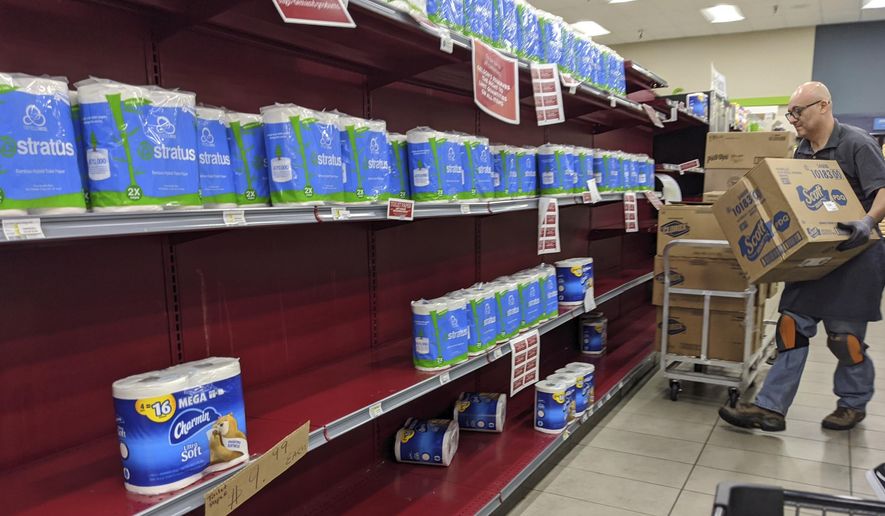The frantic coronavirus-spurred run on the nation’s toilet paper supply has begun to take its toll on America’s sewage systems.
The Environmental Protection Agency issued a statement Monday urging Americans to flush only toilet paper, not disinfected wipes or other items, to protect the nation’s wastewater management infrastructure.
“Flushing only toilet paper helps ensure that the toilets, plumbing, sewer systems and septic systems will continue working properly to safely manage our nation’s wastewater,” said the EPA statement.
The advice comes after weeks of toilet paper hoarding by consumers seeking to stock up in reaction to the coronavirus crisis as Americans are increasingly told to self-quarantine and stay at home to avoid spreading the illness.
Stories of plumbers working overtime abound. In Ohio, Roto-Rooter’s Adam Gould said clogged pipes from baby wipes and disinfected wipes are becoming a problem.
“I have heard some stories that people are flushing socks and everything else down the toilet,” Mr. Gould told the Dayton Daily News.
Suggestions on what to do if you run out of toilet paper include buying a bidet, taking a shower, and using washable cloths, as well as repurposing napkins, baby wipes, tissues — even coffee filters — although the advice typically comes with instructions not to flush anything other than Charmin and its ilk.
“Flushing anything other than toilet paper, including disinfecting wipes, can damage internal plumbing, local sewer systems and septic systems,” the EPA said. “Fixing these backups is costly and takes time and resources away from ensuring that wastewater management systems are otherwise working properly.”
Flushing disinfecting wipes can cause sewer & septic problems that affect your home & community. Help utility workers focus on their primary responsibilities by putting used disinfecting wipes in the trash — never the toilet. #KeepItFlushing #WipesClogPipes https://t.co/LiuKqc4KwQ pic.twitter.com/GCrvbVWEsx
— U.S. EPA (@EPA) March 30, 2020
• Valerie Richardson can be reached at vrichardson@washingtontimes.com.




Please read our comment policy before commenting.